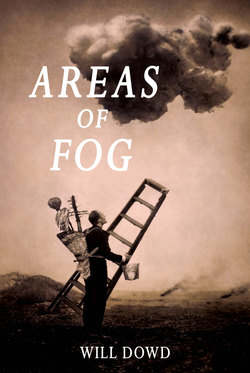Читать книгу Areas of Fog - Will Dowd - Страница 21
ОглавлениеTHIS WEEK, WHILE the Greater Boston area nursed a municipal hangover, courtesy of St. Patrick’s Day, we survived a stretch of what I like to call parking lot weather—cold, blustery days when the endless motorcade of low-scudding clouds mirrors the geometric recession and metaphysical emptiness of a strip mall parking lot.
That is, until this morning, when the winter finally broke.
The sun rose like a soprano’s Hallelujah.
I got into my car and drove with the windows down for the first time in five months. For some unexplained reason, after a long period of cryogenic gloom, driving with the windows down is the only thing that can bring me back to life.
The sky was a pale blue, save for the band of ultramarine at the top of my new windshield. (The old one cracked last week like thawing pond ice.) Somehow there were a few autumn leaves left to run over. The speed limit seemed out-of-season.
I was listening to Bach’s Mass in B minor as remixed by the potholes of Route 3A. I usually don’t care for liturgical music—anything played on the church organ sounds to my ears like a priest’s ringtone—but somehow Bach’s holy strains shone through.
Bach hated when the weather turned nice. As a kapellmeister, he depended on funeral masses—one a day, on average—to supplement his salary. Mild weather meant fewer corpses, and fewer corpses meant fewer funerals. I can just imagine Bach scowling as the first warm breeze of spring gusted through the narrow streets of Leipzig.
It’s not a very attractive image, I admit, but I forgive the cantankerous choirmaster. After all, he and death were old acquaintances. When he was nine, Bach lost both his parents. (As a member of the local chorus musicus, he was obliged to sing as their caskets were lowered by ropes into unmarked graves.) He later lost three brothers, his first wife, and twelve of his twenty children before they reached the age of three. If anyone could accuse death of slacking off, it was Bach.
Soon my joyride brought me to Nantasket Beach, where the decrepit carousel and ice cream stands were still boarded up for the winter, waiting to be resurrected on Easter weekend.
I parked and walked cautiously onto the glowing beach. It was empty except for a black lab who trotted by, grinning and dripping seawater, dragging his leash in the sand.
For about ten seconds, it was nice.
Then a wave of darkness swept the beach. I looked up. Someone had blown out the sun; it smoldered behind a veil of clouds like a snuffed wick. A complex chemical reaction took place as the Atlantic frothed, then purpled. A raindrop hit me between the eyes.
I trudged back to my car and peeled out of the seaside parking lot, my speakers blasting a plea for divine mercy in B minor.
